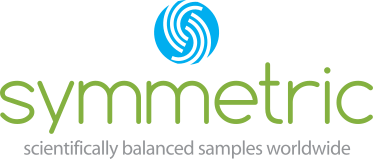- Call Us:
- 817-649-5243
- info@symmetricsampling.com
7 Tips to Cure Your Medical-Marketing-Research Woes
November 13, 2019
Healthcare is an enormous, growing business in the United States. Expenditures in 2019 will reach nearly $4.5 trillion. More than 133 million Americans suffer from chronic diseases, such as cancer, heart disease, obesity, and mental disorders. The National Health Council projects that number will grow to over 155 million in the next few years. Additionally, the industry itself is facing many challenges: new regulations, changing business models, new entrants (like Amazon and Walmart) and consolidation (e.g., CVS Health acquiring Aetna).
It’s no wonder that healthcare companies are doing more and more marketing research, as nothing is a bigger help in turbulent and changing times than to have your finger on the pulse of the customer. But medical marketing research presents many unique challenges. Here are some tips to help you navigate these turbulent waters:
- Plan for longer field times. While consumer research can often be fielded in a few days, plan for 7 to 10 days in field for medical studies. Whether it is because this population is difficult to recruit, rare, or reluctant to take surveys, it is just going to take longer. So, when you’re doing marketing research about healthcare, be patient.
- Loosen up the purse strings. Incentives for doctors and some other medical professionals are extremely high. If you were surprised that B2B incentives can be 10-20x those of consumer respondents, you will be stunned to learn that incentives for certain medical specialties can be 20x the typical B2B incentives. What’s 30 minutes worth to a doctor? Get ready to pay for the information you want.
- Know the regulations. In some states, doctors are not allowed to accept incentives for completing marketing research. If you are trying to reach doctors in one of those states, you’re going to have to try something else (such as providing a report of the results) to entice participation.
- Use mixed methods. Online surveys are typically the best for healthcare professionals, especially mobile-optimized online surveys, but other methods may work better depending on the topic and the respondents. You may even need to think about a faxed survey if that is what’s needed.
- Expect to pay more for qualitative. Qualitative research can definitely be done with this audience, but expect higher costs for medical professionals. It always comes back to time: their time is valuable, and they don’t really need the money, so why should they do your research?
- Be prepared for small sample sizes. Depending on the specialty you are interested in, you may not have the ability to pull a random sample. You may be trying to contact every available person to get enough completed surveys! How about neurosurgeons? One of the smallest specialties, representing only .5% of all physicians, there are just under 3,700 neurosurgeons in the U.S. And if you’re looking at a limited geography, that number quickly becomes very small.
- Beware of fraudulent respondents. It is relatively easy to vet physician respondents to make sure they are who they say they are. In the U.S., the AMA maintains a database of all licensed physicians. Outside the U.S., the process varies, but there is a similar resource in each country. Unfortunately, that is not the case for other health professionals. Patients with rare diseases are another difficult recruit as there is no way to verify that they actually suffer from their disease. Combined with the high incentives offered to medical respondents, it makes an attractive target for fraudulent respondents. Careful screening and other fraud-detection methods should be used rigorously.
While conducting marketing research – with physicians, other healthcare professionals, or patients is challenging, having information about the wants and needs of the market participants is invaluable. And given the size and volatility of healthcare in the U.S., the need for that information will only become more critical. Working with a marketing research partner that has extensive experience in medical research can make your learning curve shorter and reduce the pain of conducting marketing research in the healthcare industry.
Want to learn more about marketing research in the healthcare market? Contact Symmetric today! info@symmetricsampling.com
